I have been asked to provide a comment on the current ongoing case of the GMC v Dr H Webberley. The Tribunal hearing is being held at the Medical Practitioners Tribunal Service (MPTS).
Firstly, this blog is an opinion on matters as they proceed, and I have no part in the case. I am merely viewing aspects from the outside, like many others. I am preparing this in a non-professional capacity, but I do have some experience at giving expert evidence at tribunal over many years.
I am getting updates from ‘live Tweets’ from the hearing provided from the Tribunal service and will see if I can get a press update as well. I am also thankful to @truesolicitor and others for their updates on this case. We are aware of other live feeds but are also aware that these are not as accurate and the reporting is, let’s say, skewed.
I am trying to remain faithful to the feeds and comments made, but to report the facts and give a background to the proceedings and how the trial system works.
In this case, and current tribunal hearing, Dr Webberley (Dr W) is accused of practising medicine outside the rules and regulations of the General Medical Council (GMC) during the period March -November 2016, A failure to hold a proper safeguarding policy, and (2018) a failure to be registered as a practice in Wales. But there is more to it than that.
This update is from day 17
Day 17 is brought to you by …. Well, I normally have one that fits, but today, there are many. So, I will let you decide which you think is appropriate once you get to the end of the day’s events.
In no particular order: And it started so well
Now, now, calm down children
Pots and kettles
Well, that is a bit of a pickle
(Monday) [week 5] of the public hearing.
Normalish start at 10:00am, everyone back from a jolly weekend perhaps, although I would imagine there was much going on behind the scenes.
Chair gave an update and both SJ and IS gave a review of where they were with the case and who needed to call whom for evidence. So far so good?, well No.
There was talk of an ‘additional report’ to do with a bone scan referred to by PGB but, that seems to not have been given to Dr A. There is confusion (again) about GMC evidence.
IS states that when he questioned PGB on the bone scan report, he did not mention another, but yest another was issued by the GMC. This, IS says has the same result but also includes a handwritten note from PGB. The document is admitted, given a number, and included.
Why, oh why, are we here again with missing. Incomplete or added information, so late in the day? (more on this later, lots more!)
It has been said by others on this aspect, the GMC handling of this could be the subject of an appeal on the process from the blue team. There is also the risk that the Panel themselves could pull the plug on this. As the bringing of this case is about public (patient) safety, that is unlikely, although the panel could just stop the hearing once the GMC evidence has been heard. The GMC could themselves just withdraw, which is also unlikely.
So, what to think of the ‘new’ or ‘additional’ evidence from this report?
It has been said that the panel could take inference the statement from PGB “all the records were there” is short of the truth. As the latest extra document would suggest.
Hands Face Space?
Well, we can’t start as before because it is implied that two of the panel (judging this hearing) have Covid. They are not in the room but working remotely.
I have to wonder if those in this hearing, given they are medical experts and/or are in a medical setting, would be able to do the basics to keep themselves away from Covid!!. I assume they are all double jabbed after all.
If they can’t keep covid at bay for lack of basic hygiene protocols, what chance do any of us have?
I don’t have the details as to whether they are isolating because of positive tests of others or they have themselves, but it’s not good really.
Let us begin (again)
You will recall Dr A was in the middle of being cross examined by IS (the red team QC).
In my analogy, Dr A was in a tank of water, relating to his level of discomfort, and that tank was overflowing. Perhaps it’s been emptied over the weekend, and we are ready to start.
So back to Dr A.
SJ questions him first. Remember, Dr A is then supposed to give answers to help the case for the GMC.
Dr A is asked about GD and its diagnosis. We already know he has NEVER diagnosed this in a patient and has only come across it when a patient has been referred to him with another condition, mainly Autism and/or ADHD.
He responds by saying he treats for those aspects first and ignores the GD aspect. Dr A admits to CBT (Cognitive Behaviour Therapy) on patients.
He seems to struggle with the concept of GD, which as we know it outside his competency. He is only keen to talk about the referrals for other aspects, which he may/may not treat. But as these are interlinked with GD, that’s not going to give him the full picture.
This is not going well in boosting Dr A’s credentials to the panel, given he hasn’t worked with any trans patients as trans patients, only as part of something else.
SJ continues to try and get Dr A to answer a line of questions to make him look like he has some knowledge. IS sees through this and interjects. Dr A is getting in a pickle about what he knows and doesn’t know. That tank is filling up again.
Even the panel chair is a little exasperated at this point and is trying to establish where DR A’s expertise might lie in relation to the treatment of trans patients.
Back to the comfort zone that are MDTs (again)
SJ (this time) decides to test Dr A on his favourite topic MDTs.
Essentially, the line of questioning again shows that Dr A, apparently and expert on MDTs can’t state that they are suitable or useful in every case, and accepts (again) that other pathways exist, that may be acceptable and suitable in some cases. Including, it seems when using an MDT prevents a patient from getting the right treatment that causes harm to the patient.
The Tribunal decides to question Dr A. They can and do, especially in this case as he is the ‘expert’ witness and is there to help guide them from his ‘unbiased’ evidence.
The panel are keen to clarify points with Dr A, on a few matters, particularly on the matter of MDTs. As we know, he loves these, and the panel want certain aspects clarified if he can. (this is an important issue, as I will cover shortly.)
They ask if he has ever attended and MDT for a trans youth? Dr A “No”
They as if the MDT model is the only model that can be used? Dr A “No”
They ask him about if he would leave a child in distress in terms of a prescription approval/denial?
Dr A starts to get a little tangled now and suggests a family session to ‘help relaxing the child’ would be acceptable.
Dr A also states, in his pickle of responses that WPATHWPATH World Professional Association for Transgender Health https://www.wpath.org says MDTs are the only way forward, which they are not. Even he has said that, more than once.
Remember this isn’t cross examinations, these aren’t trick questions.
The panel also question him of a set tup for private practice compared to NHS care. He says it’s a process that should follow the guidelines (if only he was clear and certain what they were).
The point of these questions is the panel have latched on to matters from Friday. They are trying to clarify Dr As evidence, and he seems to be confusing them still further.
They again ask him if the processes he is outlining are “abandoning the child”. Dr A responds by reiteration that “GD isn’t an emergency condition.” Remember he also said not treating a patient with GD isn’t a neutral act. OK, perhaps not, but there are many issues surrounding it that are, and Dr A seems to ignore the reasons for those issues, namely GD. Given he’s not really seen or diagnosed it.
The panel ask him if he’s aware of how other countries deal with this. Dr responds by saying “he can see from WPATH there are lots of different approaches.” He’s said that before but was brought here to assert there aren’t other approaches.
I would also add that Dr A mentions a hub and spoke model in his report, in response to questions about Dr W’s approach. He doesn’t dismiss this idea but does suggest it may not be appropriate in all cases. I guess Dr W would agree.
The point is, as an ‘expert’. And acting for the tribunal, is he not obliged to identify that other approaches do and can exist, and they are and can be suitable? As an ‘expert’ he is obliged to consider these aspects and not to ignore them, in the hope they don’t exist. He may have an opinion on the different techniques in this field, from his medical experience. But to not acknowledge they exist or to reference them. Is perhaps an oversight that is telling in this case. If, as he has said, other options are acceptable, then, as an expert, he should consider and review those options.
Dr A is questioned by the panel about benchmarking. A well-established technique to check services meet requirements or standards. All well and good but…
Dr A then states that Dr W should benchmark against similar services elsewhere. He then accepts. From his own report, that there are few. If any, services that she can benchmark against. He also states that “…trans children can’t [be] waiting years on a waiting list.” ( they shouldn’t be rather than aren’t)
He then gets into a pickle of how this could be achieved using a full MDT even though DR W didn’t have one. He is then asked by a panel member “If there is any evidence that and MDT in treating GD is better?”
Dr A responds he can’t comment on that but can comment on MDTs as standard in the UK.
He is then asked if Dr W could/should have done better? Dr A says, “that she should have figured out what can safely be offered in the context of what else was on offer.”
I am not sure from what has been seen so far that she didn’t do that. We have also been told that there is little to benchmark her services against. Mainly because they don’t fit the standard. That is because they are specialist and not mainstream. But it also depends on what it is supposed to fit with. Dr A has said the WPATH is flexible and that there are other protocols and methodologies that are ‘flexible’. So, he seems to be arguing against himself.
He then states, as has been mentioned occasionally, that he has only been asked to review 3 sets of patients notes i.e., Patients A-C.
These three patients seem to form the entire burden of proof against Dr W. Three selected patients by the prosecution, when she treats many more. We must also be aware that none of those patients are complaining of her care towards them, the opposite in fact. It seems the direction and opposition from her services is driven by those in the NHS and particular parts of Tavi, who feel she did not give adequate care when they themselves were happy to abandon the same patients for approaching her.
This is the aspect that may become the most taxing for the panel in terms of deliberation.
Back to Dr A
The panel continued their questions.
They ask why is it wrong for Dr W to use the model followed by the University of California as a centre of excellence in trans healthcare?
Dr A responds by referencing the hub and spoke model but says it wasn’t clear she was using that model from the notes he saw.
Why? Did he not know? Should he have known (he is the ‘expert’) why didn’t he ask? Does it need to be clear on the notes? Dr A then refers back to “underlying causes”. He again isn’t seeing GD as a thing. He can’t see it in his gaze and there MUST be another reason in his book. How can he be a professional expert when he can’t see the very thing that (most) trans patients have and don’t like. It is the backbone of being transgender in most cases and it is the basis of many other aspects of trans behaviour and stress. How can he not see that?
The panel then asks him about Dr W and her practice.
Panel “You said transexual healthcare is controversial. What do you mean?”
Dr A “It’s a difficult area to work in. I think Dr W had a genuine desire to help (can I say No shit Sherlock at this point?) There’s a lovely dialogue between patient A’s mother who was really worried. Dr W just said come and see me.”
He continues..
“I think it’s difficult to set up as an independent clinician & guarantee that the NHS will give you a warm embrace and work with you. (can I say No shit Sherlock at this point? – again) Places like mermaids find themselves in the news all the time, and they are trying to do is provide these services kids with the help they need.”
The panel questioned him on MDTs in 2016. And how ‘difficult’ it is to put together an MDT in 2016 (the time of the alleged offenses).
He responds “ It’s an area of practice where you have to have a bit of steel about you to practice, the perception is there is a huge amount of risk.
I guess we all knew that. It doesn’t really answer the question. If he can’t answer the question, which is fundamental to this case, Why are we here?
He even accepts that “the majority of patients treated for GD go on to do very well….” Not exactly slagging off the practice adopted then.
He is asked “ how many clinicians at the Tavi?” He responds, “I’ve never worked at the Tavi.”
May be not, but has he asked what the patient/consultant ratio is? How does this compare with Dr W practice? Does it make a difference? He is the expert after all.
Then his expertise seems to fall off a cliff in the research needed on the person he is being bought in to disclaim.
Chair of the panel “When you criticise Dr W hub and spoke model, you weren’t aware of the extent of her learning?”
Dr A responds, “I was unaware of the extent of her background and training, I thought she was just a GP when I wrote my report.”
One has to wonder what information he was given and what his remit was. It seems very narrow and has set him up for a fall.
The chair then states the obvious really, that Dr W is a specialist GP dealing in trans healthcare with “considerable” learning experience in dealing with the three relevant patients.
Dr A states the panel should ask a GP as he’s not a GP. Maybe they should ask and expert as he’s not an expert.
The panel then ask him again about MDTs, from a different angle.
They suggest that with the three patients concerned, they wouldn’t have gone to see Dr W (having moved or been abandoned by the Tavi) if the MDT model worked.
Dr A suggests it wasn’t the MDT model at fault but one of time.
Chair then asks regarding patient A and the reasons for them visiting Dr W if it wasn’t for issues with the Tavi on more than one aspect of the care being given. And the MDT didn’t help with the approach being given.
SJ (getting nervous) interrupts and asks the question should be re phrased as its not acceptable for Dr A to deal with timing of treatment. It’s too late, the question and emphasis has already been made. That may be telling.
The Chair re asks the question and moves on to matters of treatment for ADHD and the services of CAHMS.
IS then intervenes to make a point from Patient A’s mothers statement about just how badly treated she felt she was by the Tavi in the care given. IS is making the point that MDTs aren’t always good and that it was the quality and type of care given by the Tavi which were the weaknesses. That didn’t happen with Dr W’s care, MDT, or no MDT.
IS asks Dr A if he has seen the CQC report for the Tavi? Dr A has not. (I guess it’s no surprise really)
The question is how can he, as an expert being asked to criticise Dr W, not be aware of and have looked at the report on the service being held up as the established benchmark? Especially when that service has been shown to have failed so badly and most of this has been admitted in this hearing by members of the staffing team in that very service.
IS then steps in, given that he is the defence QC. “No CBT is going to help anyone get over the distress of their GD. CBT does not cure GD”
Dr A replies, “There is an unhelpful status around the term GD. It is not a clear mental health disorder.” He continues. In that sense CBT won’t help you get over your GD, but it will help get over your distress, so it’s important to access it.
Not sure that’s the most helpful response ever. He just doesn’t get GD really.
IS continues regarding the patients distress and the need to leave the NHS care and seek private care.
SJ intervenes and perhaps shouldn’t have. HE states, seeming abruptly, that that they (NHS) HAVE to discharge patients who seek private care. If that’s true, it helps little and shows how the cracks and divisions that caused this case occurred. What happened to working collectively and in harmony across specialisms to treat patients, in an MDT perhaps?
Is this what this case is REALLY about. Jealousy and rage, that others can do as well if not better than the NHS? It seems like it. Maybe that’s why the GMC (the doctors regulator let’s not forget) is struggling to find credible and robust experts willing to testify against Dr W. The quality of expert, so far produced, isn’t exactly the pinnacle of medical practice. Or, if it is, there are bigger problems that this single case.
Dr A then admits that a certain degree of ‘benchmarking’ is decisions on ‘self-competence’ and that GPs should assess this. Earlier he said Dr W was a GP. Maybe she could self-assess and benchmark.
There followed an exchange regarding treatment and hormones. Things were getting a little tetchy at this point.
Dr A was allowed to leave the stand and coughed his way to lunch, as he had coughed most of the morning (according to the tweets).
When evidence isn’t evidence and who is better qualified?
The rest of the day was spent with QCs and the chair bickering about what and who can be permitted to give evidence.
The issue here, as has come up time and time again, is the Late production of evidence/amended evidence by the GMC. This has a knock-on effect and ‘ripples to the defence and back again.
IS states to the panel that he was only provided with the evidence bundle (as it was at that time ) in March 2021! (that’s 5 months ago, and we have been at this hearing a month already.
That means, he has had 4 months to prepare a cognitive defence based on the prosecution evidence. It also presumes that the date of this hearing was probably already set by that time. The GMC have had 4-5 years to prepare for this and knowing what the case was they were bringing.
Frankly this is appalling.
In that 4-5 months, the blue team have had to find witnesses and experts willing to testify and produce reports on the basis of the red teams evidence. This in a complex medical trial.
SJ glibly states that Dr W knew the allegations and that she should have prepared. That may be true, in theory BUT without “the evidence” she could not defend the actual claims and detail then presented. Experts aren’t easy to find, and these matters take time. It can’t be done on a ‘just in case’ basis as SJ suggests. He is in control of the allegations at that time, she isn’t
So, When the blue team is preparing their evidence, which takes time, and the red team changes things there is a knock-on effect. This delays the dates for witnesses and the hearing in general.
The chair was getting visibly distressed in trying to keep this on track.
The red team wish to call a number of witnesses, amongst them Prof Bouman and Dr Schumer.
Prof Bauman is the chairperson of WPATH. You would imagine he would know a little about the document and wouldn’t need to copy and paste it.
The second is Dr Shuman. He is a US paed endo experienced in trans healthcare.
The bickering is about whether these two can be admitted as witnesses by the red team. SJ said that there are ‘some aspects of concern’ for each.
That’s a bit rich given the quality of experts so far seen. I think this is a bit of despite aback peddling and game playing to prevent their whole case from being unravelled more than it may be already.
IS was getting a bit cross at this stage and told the tribunal so.
“I’m astonished that the GMC is seeking to keep out expert statements from two extremely qualified people in the area of trans healthcare on spurious grounds.”
SJ tries to recover this by saying “I’m not being facetious, but there needs to be rigor, this tribunal has applied rigor and thought to evidence. Tits the GMC who must resolve this, we will look at these matters tonight but realistically we are not going to make any progress and I regret that.”
IS points out the inconsistency in this argument and the day essentially ends without a decision.
The day was supposed to be about two witnesses at the stand. In the end, one never got his chance, and two other potential witnesses may not either.
All of this stems back to the game playing by the GMC in the case ,management of this matter.
This could very quickly backfire on them. The panel are beginning to see through the quality of the witnesses thus far and are asking key and important questions that would seem to have a leaning towards the defence.
That said, the defence will need to make their case in good time, if they are allowed witnesses to do that.
We still have some more red team witnesses to go, some still under oath.
As a neutral observer, SJ is going to have to recover from the destruction of his two experts and the lack of robustness shown in the process by the NHC/GMC witnesses so far. I think that the implicate quality of the blue team witnesses has got them a bit worried and that their already weak arguments could be totally undermined, long before the panel need to make a decision.
That is in the future and remains to be seen.
What next?
The day ended, fittingly, with an argument about what time to return tomorrow. 10:00 won out over 09:30.
Back tomorrow (day 18) for more argument, and perhaps a new witness.
To be continued…../
Nicola





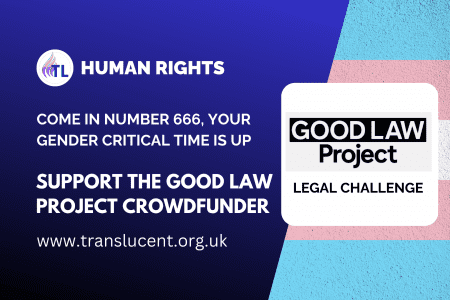
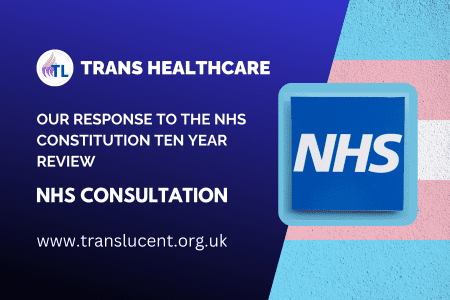
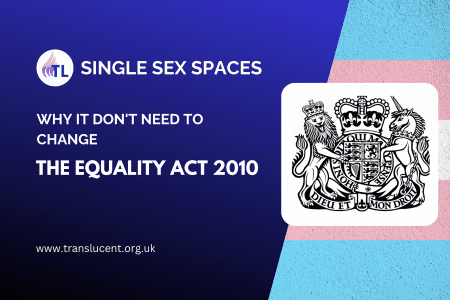

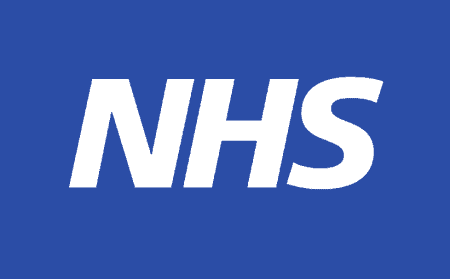
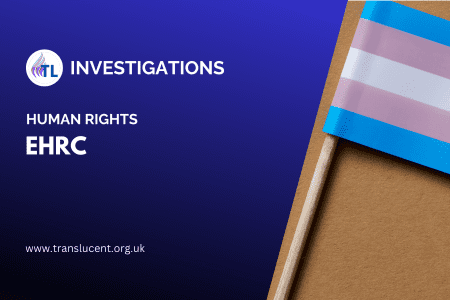
 To provide the best experiences, we use technologies like cookies to store and/or access device information. Consenting to these technologies will allow us to process data such as browsing behaviour or unique IDs on this site. Not consenting or withdrawing consent, may adversely affect certain features and functions.
To provide the best experiences, we use technologies like cookies to store and/or access device information. Consenting to these technologies will allow us to process data such as browsing behaviour or unique IDs on this site. Not consenting or withdrawing consent, may adversely affect certain features and functions.